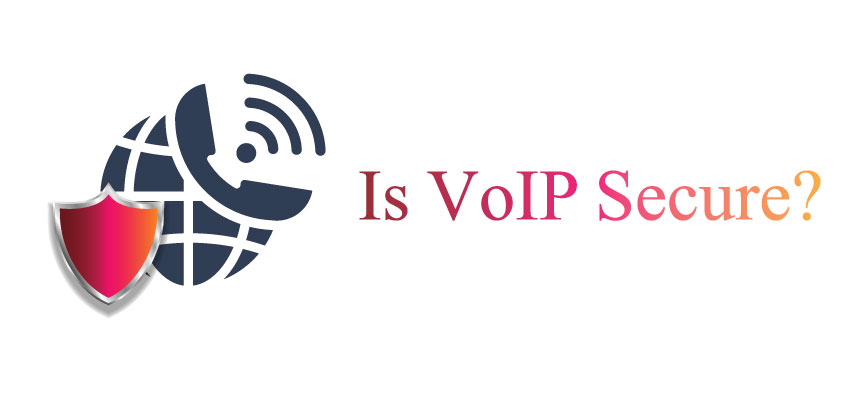
You can manage to secure your VoIP if your network is strong enough. Even so, you are getting into a risky zone, if you are thinking of internet telephony.
According to Doug Haluza, who is an expert in offering solutions for business telecommunications problems, there is no method of regulating how packets get routed, and how many carriers they will pass by. Thus, this makes internet telephony risky.
Besides that, the voice passing over your data lines is not more or less safe than any application that you have in your IP infrastructure. In fact, in some cases, they are less secure, like traditional telephony.
By good luck, we have VoIP technology that is growing daily. Also, after testing VoIP in the context of big problems about IP data and security of traditional telephony, the establishment is a problem. But it is not a nightmare.
The growth of VoIP
Many big companies are now evaluating their next telephony technology generation. This is no exception of VoIP. This technology relays voice conversations through IP protocols. Also, this technology has been in existence for a good number of years. As per history, the most usual app for this type of tech was toll by passing.
This means utilizing data services which are less expensive instead of minute voice services. Although this was cost-effective when making international calls, this case is no longer the same. Indeed, low toll rates have eliminated many incentives for bypassing toll charges. Also, the price of phone calls has been reduced, thus saving more money.

However, VoIP is growing because of the concentration shifts from saving simple tolls to re-engineering the whole voice infrastructure.
Besides that, as companies go through the usual cycle of changing their PBXes, VoIP might be a logical option for converging call centers, messaging, and communication multimedia collaboration.
Thus, VoIP is growing and might be in your company very soon. Also, similar to conventional telephony, VoIP is safe in a corporate IT environment that is well-designed. But, the conventional telephony is not that secure.
Voice over Ethernet
Are you worried that VoIP LAN or WAN traffic might be relayed over an Ethernet, and then get broadcasted over the whole local network? That is not the case. Nobody can listen.
Nonetheless, some years ago, one coaxial cable was used to broadcast nearly all Ethernet traffic, and users on the network could access it. But, today, almost the entire Ethernet traffic get switched. Even so, all network points can be accessed. Like you can call anyone who is connected to the traditional telephony network, the packets that get exchanged between two network areas are only available at those points.
Therefore, the architecture of VoIP resembles that of traditional telephony. The VoIP packets, which include an interaction between two network areas, can only be accessed at IP phones that are at those endpoints.
Nonetheless, these this infrastructure can get compromised if your switches are not secured from verified access. Thus, someone with an appropriate tool may tap in, although the risk is minimal than that of traditional telephony.
Voice over Internet
All company intranets are closed systems. So, any security breach must be from within. But, how does VoIP security compare with that of your phone system?
The use of IP addresses has minimal centralized control compared to traditional phone numbers. As a result, the anonymity makes a good environment for handling spoofing. This enables DDoS attacks, as well as other network issues which might break your call-processing abilities. So, VoIP is vulnerable to security issues in IP.
The dependence of VoIP on continuous and dependable packet flow makes availability a problem when there is an attack.
Further, when doing your business via the internet, you change the regulation of your voice or data transmission to the networks of other people. Also, some of the networks are safe than others.
On the other hand, traditional data networks rely on some popular and trustworthy entities. This is not the case on the internet, because although you can select your local ISP, your traffic between internet points comprises of various ISPs, which might change.
Thus, limiting VoIP to internal use is the safest way. To do so, add VoIP like a traditional app on a safe corporate intranet.
You can try a unique and enhanced cloud communication platform for your effective business communications.
Is VoIP Secure?
Tapping a VoIP call is a difficult task. But, prior to encoding all your IP telephony using IPSec, you should take some precaution, such as informing the sales force not to talk about primary discussions on the mobile phones in crowded areas.
Also, before deploying VoIP, you should ensure your data network is secure, more so if you have not carried out some security audit. Besides that, unlike traditional telephony, you can enhance the level of your telephony security.
If you are still facing problems with quality of calls, you can try enhanced Voice API.
In conclusion, similar to traditional telephony, VoIP is secure. Besides that, it is more secure than your mobile phone.
